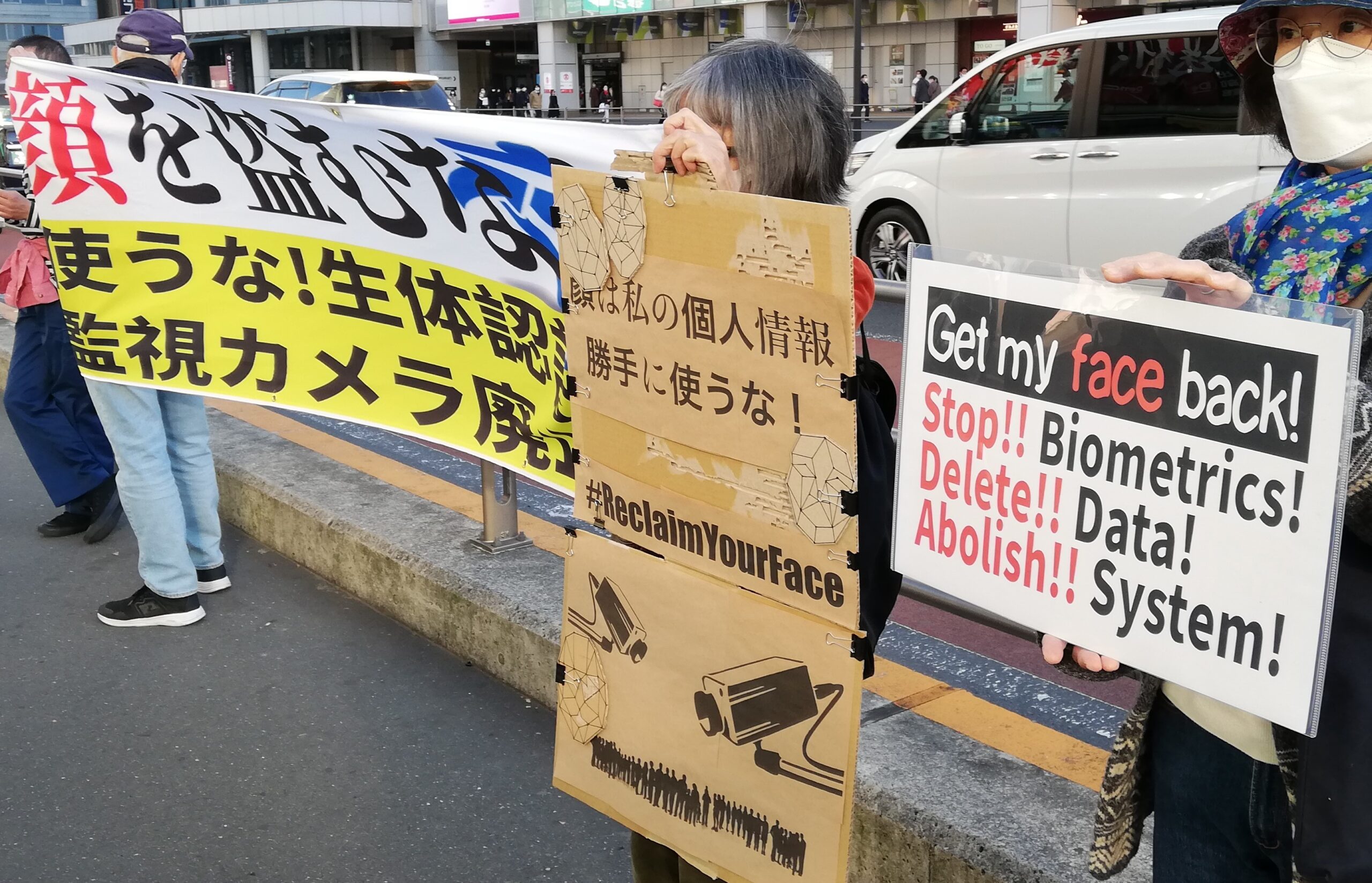The Citizen’s Liaison Committee against the Wiretap Law has submitted the following open letter of inquiry.
Mr. Yuji Fukazawa, President, East Japan Railway Company
Contact: Citizens Liaison Committee Against Wiretap Law
November 5, 2021
We are users of JR East Japan. We are surprised to see that your company has introduced a face recognition camera system. We think that this is a violation of privacy and personal information, and we have sent a letter of protest and question, but we have not received any reply. We have no choice but to submit an open letter of inquiry. This open letter of inquiry is based on the purpose of the protest and letter of inquiry that we have already sent. We strongly demand a sincere response from JR East.
We ask for your response by November 20.
- Why doesn’t JR East listen to the citizens’ concerns about the face recognition camera system that is related to human rights? As instructed by your company, we have sent protests and questionnaires by e-mail, but we have not received any proper answers. We were shocked when you replied by e-mail that you could not answer due to security reasons. On October 12, we were forced to go directly to the head office of JR East to request a meeting with the person in charge, but the receptionist could not help us. Is it your company policy not to respond to voices that are critical of your company? How can we get in touch with the person in charge and express our concerns about the face recognition camera system? Do we continue to take the attitude of not listening to them?
- Surveillance cameras are supposed to be installed for crime prevention. Facial image data is personal information. According to the Act on the Protection of Personal Information, the use of such data must be “notified to the person in question or made public,” but in what way did JR East “notify or make public” the installation of surveillance cameras so that more than 10 million passengers would know about it? Also, if the purpose of the surveillance cameras is to prevent crime, they should be installed in a location where everyone can see that the cameras are there, but are they?
- The face recognition camera system registers the facial image data of ” persons released from prison” or ” wanted persons” provided by the police or prosecutors, and automatically matches it with the facial image data of all JR East users, and the person who matches will be dealt with by the station security guard or the police officer who was reported. JR East says that only ” persons out of prison” are excluded from the surveillance camera system, please tell us the reason. In addition, “wanted persons” and “suspicious persons” are still subject to the system, but please tell us the reason why.
- “Suspicious persons” are also included in the scope of this face recognition camera system, but who will judge whether they are “suspicious persons” or not? What are the criteria for “suspicious persons”? In addition, those who are deemed “suspicious” will be included in the database and later used in the face recognition system, which is a serious violation of human rights. The person in question will never know why he or she has been marked as suspicious, nor will he or she be able to defend his or her actions. You will be registered in the database as a “suspicious person” for the rest of your life. What do you think about this point?
- Isn’t this face recognition system based on the premise that if the subject registered in the database is found among the passengers, his/her behavior will be tracked by the cameras installed in the premises of JR East? Isn’t this an attempt to use the face authentication camera system to capture not only the face image data but also the behavior (=location) of the subject in question?
- The EU’s GDPR (General Data Protection Regulation), which has had a major impact on personal information protection legislation around the world, prohibits the handling of biometric data, including facial data, as “special types of data” without the consent of the individual. Some states in the U.S. have also created laws to regulate facial recognition cameras. Was JR East aware of this trend when it introduced the facial recognition camera system?
- JR East claims to have consulted with the Personal Information Protection Commission and obtained their approval for the introduction of this system. According to the news report, the Personal Information Protection Commission interpreted that in the case of security cameras, notification or publication is not required, and approved the introduction of JR East’s face recognition camera system, but isn’t your system a surveillance camera, not a security camera? If it is a security camera, shouldn’t JR East’s camera be installed in a more conspicuous place, not on the ceiling, where it can be easily seen by users?
- Finally, even if the face authentication camera system is for the purpose of crime prevention as East Japan says, didn’t you think it necessary to “notify or announce” the system to 10 million users before introducing it? Please tell us the reason. Unlike the EU’s GDPR (General Data Protection Regulation), Japan’s Personal Information Protection Law does not require the consent of the individual to be obtained when using personal information. Instead, it requires that the purpose of use of personal information be “notified to the individual or made public. Even security cameras require “notification or announcement” to the individual. Why couldn’t you have thought of that?
That’s all.
